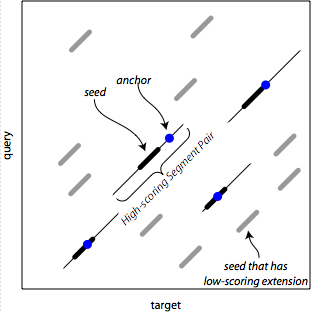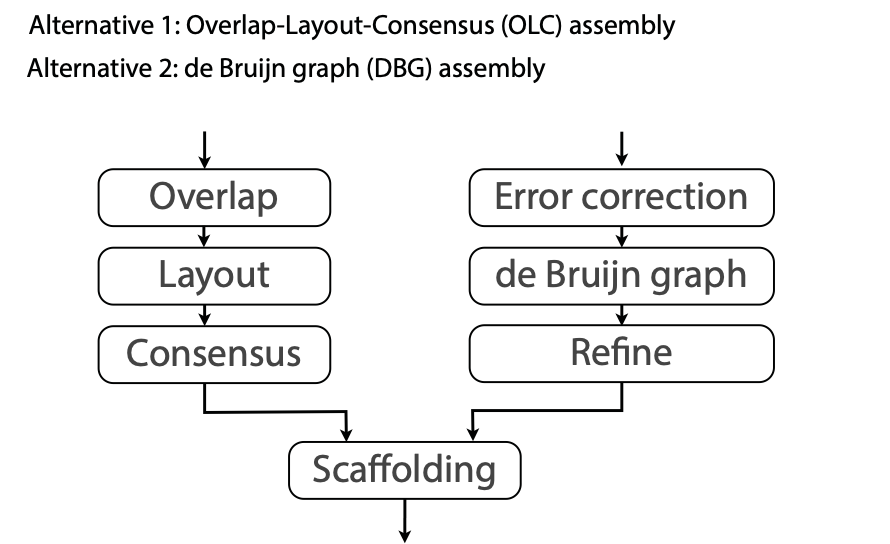##  --- ## Order of growth  <!-- .element height="50%" width="50%" --> Note: Constant runtime is represented by O(1), linear growth is O(n), logarithmic growth is O(log n), log-linear growth is O(n log n), quadratic growth is O(n^2), exponential growth is O(2^n), factorial growth is O(n!). --- ## Algorithmic complexity ```python def calcFactorial (n): factorial = 1 for i in range(2,n+1): factorial = factorial * i return factorial ``` Note: O(n) --- ## Algorithmic complexity ```python def bubble_sort(list_): n = len(list_) for i in range(n): swapped = False for j in range(0, n - i - 1): if list_[j] > list_[j + 1]: list_[j], list_[j + 1] = list_[j + 1], list_[j] swapped = True # If no two elements were swapped in inner loop, the array is sorted if not swapped: break ``` ``` [5, 1, 4, 2, 8] ``` ``` [1, 5, 4, 2, 8] [1, 4, 5, 2, 8] [1, 4, 2, 5, 8] [1, 4, 2, 5, 8] [1, 4, 2, 5, 8] [1, 2, 4, 5, 8] [1, 2, 4, 5, 8] [1, 2, 4, 5, 8] ``` Note: O(log n) --- ## Algorithmic complexity ```python # Binary search, returns index of x in arr if present, else -1 def binary_search(arr, low, high, x): if high >= low: mid = (high + low) // 2 if arr[mid] == x: return mid elif arr[mid] > x: return binary_search(arr, low, mid - 1, x) else: return binary_search(arr, mid + 1, high, x) else: return -1 # Function call result = binary_search(arr, 0, len(arr)-1, x) ``` Note: O(log n) --- ## Greedy vs. Dynamic Programming | Feature | Greedy Algorithm | Dynamic Programming | |------------------|----------------|---------------------| | **Definition** | Makes locally optimal choices at each step. | Break problems into overlapping subproblems and avoid recomputation. | | **Works on* | *greedy choice property*, *optimal substructure*. | *optimal substructure*, *overlapping subproblems*. | | **Time Complexity** | O(n) or O(n log n). | O(n²) or O(n³). | | **Memory Usage** | minimal memory, does not store past results. | Requires additional memory to store subproblem solutions. | Note: optimal substructure: optimal solution contains within it optimal solutions to subproblems, Greedy-choice property: a globally optimal solution can be arrived at by making locally optimal choices, Overlapping sub-problems: limited number of distinct sub-problems, repeated many times --- ## Coin change Given a set of coin denominations ${c_1, c_2, ..., c_n}$ and a total amount $S$, find the minimum number of coins needed to make $S$. You can assume you have an infinite number of each coin. --- ## Coin change, Approach 1 1. Always pick the largest coin denomination first. 2. Subtract it from the total amount. 3. Repeat until the total amount becomes zero. Note: {1, 3, 4}, S=6, {4, 1, 1}, {3, 3} ``` --- ## Coin change, Approach 2 1. Define `N[i]` as the minimum number of coins needed to make amount `i` 2. Use the recurrence $N[i]=min(N[i−c]+1)$ for all $c$ in coins, if $i−c \geq 0$ --- ## Coin change, Approach 2 ```python def dp_coin_change(coins, S): N = [float('inf')] * (S + 1) N[0] = 0 for i in range(1, S + 1): for coin in coins: if i - coin >= 0: N[i] = min(N[i], N[i - coin] + 1) return N[S] if N[S] != float('inf') else -1 ``` ``` # Example Usage coins = [1, 3, 4] # Coin denominations S = 6 # Target amount print("Min Coins (DP):", dp_coin_change(coins, S)) ``` --- ## Coin change, Approach 2 ```python def dp_coin_change_with_coins(coins, S): N = [float('inf')] * (S + 1) # Min coins needed to make amount i N[0] = 0 # Base case: 0 coins needed for amount 0 coin_used = [-1] * (S + 1) # Track last coin used for each amount for i in range(1, S + 1): for coin in coins: if i - coin >= 0 and N[i - coin] + 1 < N[i]: N[i] = N[i - coin] + 1 coin_used[i] = coin # Store the coin used # If no solution found, return -1 if N[S] == float('inf'): return -1, [] # Backtrack to find the coins used result_coins = [] amount = S while amount > 0: coin = coin_used[amount] if coin == -1: # No solution exists return -1, [] result_coins.append(coin) amount -= coin # Reduce amount by selected coin return N[S], result_coins # Min coins count and coin combination ``` ``` # Example Usage coins = [1, 3, 4] # Coin denominations S = 6 # Target amount min_coins, used_coins = dp_coin_change_with_coins(coins, S) print("Min Coins:", min_coins) print("Coins Used:", used_coins) ``` --- ## Gapped Alignment  --- ## Exploring the search space  --- ## Exploring the search space  --- ## Seed, Anchor, Extend  <!-- .element height="50%" width="50%" --> <small>Source: [LASTZ documentation](https://www.bx.psu.edu/~rsharris/lastz/README.lastz-1.04.15.html)</small> Note: middle of the highest-scoring 31-bp interval in the HSP --- ## Two approaches to assembly  <!-- .element width="70%" height="70%" --> ---